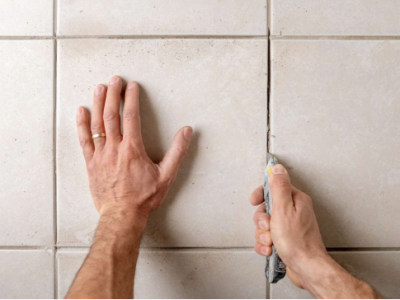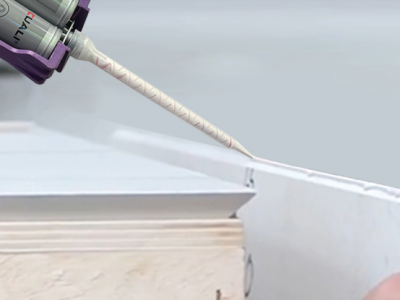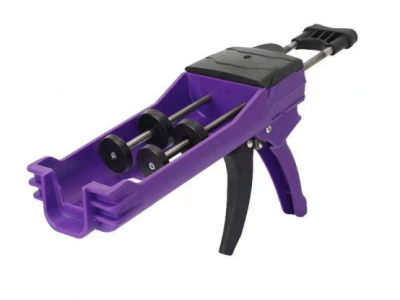When it comes to bonding materials in construction, manufacturing, or DIY projects, choosing the right adhesive is critical to ensuring durability, performance, and cost-efficiency. Two of the most popular options are epoxy adhesive and MS Polymer Adhesive (Modified Silane Polymer). Both offer unique benefits, but they cater to different needs and applications. At CUALI, a leading manufacturer of high-performance building chemical products, we specialize in both epoxy adhesive and MS Polymer Adhesive, helping our clients make informed decisions for their projects. In this article, we’ll compare these two adhesives, exploring their strengths, weaknesses, and ideal use cases to help you determine which is right for your needs.
Epoxy adhesive is a two-part compound consisting of epoxy resin and a hardener. When mixed, these components undergo a chemical reaction, forming a rigid, high-strength bond that adheres to metals, ceramics, concrete, plastics, and more. Known for its exceptional durability and resistance to harsh conditions, epoxy adhesive is widely used in industrial, automotive, and construction applications.
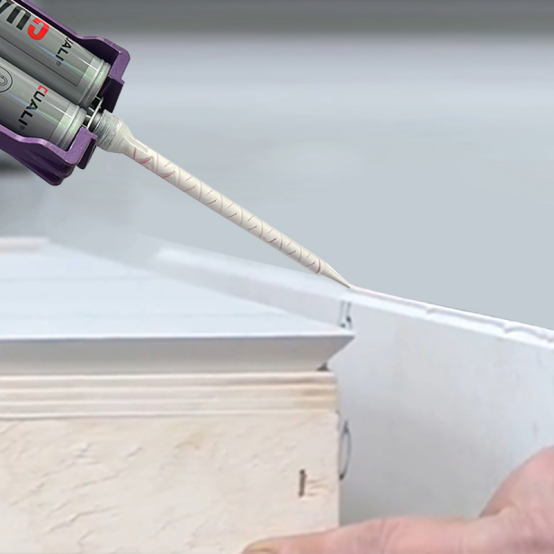
MS Polymer Adhesive is a hybrid bonding material that combines the flexibility of silicone with the strength of polyurethane. It cures through a moisture-induced reaction, forming durable, elastic bonds that withstand environmental stressors like UV exposure, temperature fluctuations, and moisture. Unlike traditional adhesives, MS Polymer Adhesive is solvent-free, low in VOCs (volatile organic compounds), and compatible with a wide range of substrates.
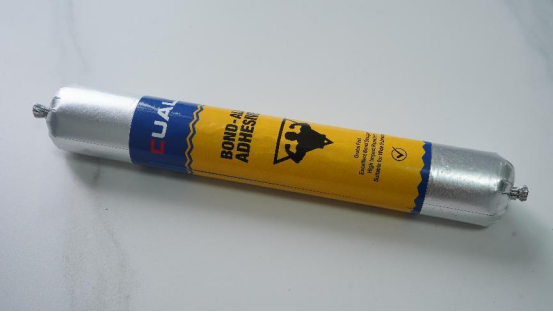
Key Differences Between Epoxy and MS Polymer Adhesive
1. Bonding Strength and Flexibility
•Epoxy Adhesive:
-Offers rigid, high-strength bonds (up to 30 MPa tensile strength).
-Ideal for applications requiring structural integrity, such as securing heavy machinery or bonding steel reinforcements.
-Limited flexibility, making it prone to cracking under dynamic loads or vibrations.
•MS Polymer Adhesive:
-Provides flexible, elastic bonds (up to 3 MPa tensile strength with 400% elongation).
-Perfect for joints that experience movement, such as expansion joints in construction or automotive parts.
-Absorbs vibrations and stress without losing adhesion.
CUALI Tip: For static, load-bearing applications, choose epoxy adhesive. For dynamic or flexible joints, opt for MS Polymer Adhesive.
2. Environmental Resistance
•Epoxy Adhesive:
-Excellent resistance to chemicals, water, and high temperatures (up to 150°C or 302°F).
-Prone to UV degradation, making it unsuitable for outdoor applications without protective coatings.
-Performs well in indoor or controlled environments, such as laboratories or factories.
•MS Polymer Adhesive:
-Highly resistant to UV exposure, moisture, and temperature fluctuations (-40°C to 90°C or -40°F to 194°F).
-Ideal for outdoor applications, such as sealing facades, bonding marine components, or roofing.
-Resists mold and mildew, making it suitable for wet or humid environments.
Example: A bridge expansion joint sealed with MS Polymer Adhesive endured 10+ years of traffic vibrations without failure, while epoxy adhesive cracked under similar conditions.
3. Ease of Application
•Epoxy Adhesive:
-Requires precise mixing of resin and hardener, which can be time-consuming and prone to errors.
-Cures quickly (1–24 hours), making it ideal for fast-paced projects.
-Non-sag formulas are available for vertical applications.
•MS Polymer Adhesive:
-Single-component, no mixing required, reducing waste and simplifying application.
-Cures with ambient moisture, making it user-friendly for large-scale projects.
-Non-sag and paintable, offering aesthetic flexibility.
CUALI Case Study: A construction team using MS Polymer Adhesive reduced installation time by 30% compared to epoxy adhesive, thanks to its ease of application.
4. Safety and Sustainability
•Epoxy Adhesive:
-Often contains VOCs and harmful solvents, requiring proper ventilation during application.
•MS Polymer Adhesive:
-Solvent-free and low-VOC, making it safe for indoor use and eco-friendly.
CUALI’s Commitment: Our MS Polymer Adhesive line is certified low-VOC, ensuring safer workspaces and reduced environmental impact.
5. Cost and Long-Term Value
•Epoxy Adhesive:
-Lower upfront cost but may require frequent repairs or replacements in dynamic environments.
-Long-term costs can add up due to maintenance and reapplication.
•MS Polymer Adhesive:
-Higher initial cost but offers long-term savings through reduced maintenance and longer lifespan.
-Ideal for projects where durability and flexibility are critical.
Side-by-Side Comparison Table
Property | Epoxy Adhesive | MS Polymer Adhesive |
Bond Strength | Very high (rigid) | Moderate (flexible) |
Flexibility | Low | High (up to 600% elongation) |
UV Resistance | Poor | Excellent |
Water Resistance | Excellent | Excellent |
Chemical Resistance | Excellent | Good |
Curing Time | 1–24 hours | 24–48 hours |
VOC Emissions | High | Low/None |
Cost | $$ | $$$ |
When to Use Epoxy Adhesive
•Structural bonding: Securing heavy machinery, steel reinforcements, or concrete.
•High-temperature environments: Industrial settings with heat exposure.
•Chemical resistance: Laboratories or factories handling corrosive substances.
Example: A factory used epoxy adhesive to bond countertop or wash basin corner, ensuring long-term durability under heavy loads.
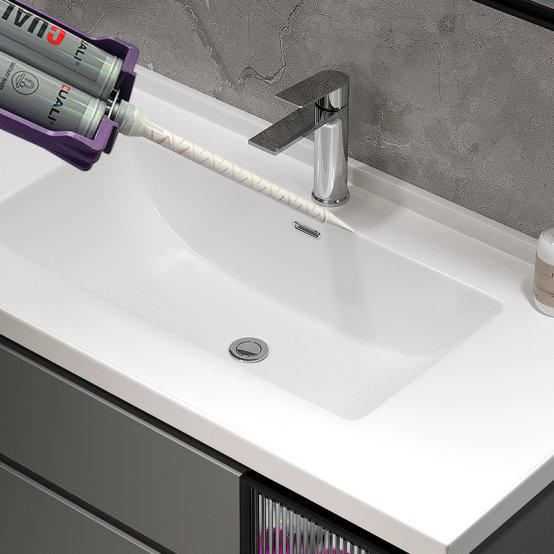
When to Use MS Polymer Adhesive
•Dynamic joints: Expansion joints, curtain walls, or automotive parts.
•Outdoor applications: Sealing facades, roofing, or marine components.
•Wet or humid environments: Bathrooms, kitchens, or swimming pools.
Example: A marine contractor used MS Polymer Adhesive to seal boat hulls, ensuring watertight integrity in harsh conditions.
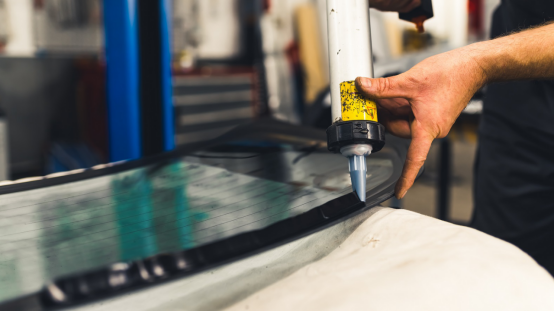
At CUALI, we offer premium epoxy adhesive and MS Polymer Adhesive solutions tailored to your needs. Our products are engineered for:
1. Superior Performance: High strength, durability, and environmental resistance.
2. Eco-Friendly Formulations: Low-VOC, sustainable options.
3. Technical Support: End-to-end guidance from selection to application.
Conclusion: Which Adhesive is Right for You?
•Choose epoxy adhesive for rigid, high-strength bonds in controlled environments.
•Opt for MS Polymer Adhesive for flexible, durable bonds in dynamic or outdoor settings.
At CUALI, we’re here to help you make the right choice. Explore our range of epoxy adhesive and MS Polymer Adhesive products today and elevate your projects to new heights.



